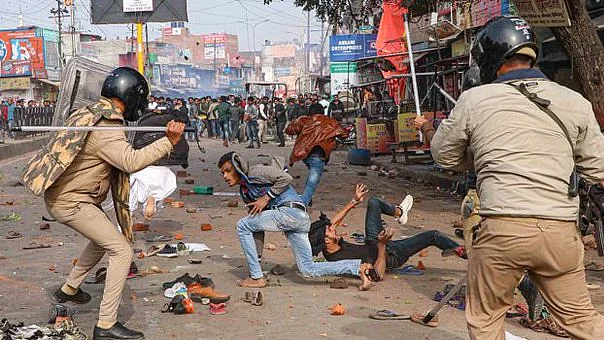Peaceful protests against CAA in Varanasi suppressed; Amnesty India urges Modi, Yogi to allow right to protest
Amnesty International India has called on PM Modi and the Uttar Pradesh govt to end the gross violations of the fundamental right to peaceful assembly in Varanasi and other parts of Uttar Pradesh

Human rights organisation Amnesty International has condemned the way Uttar Pradesh police and Yogi government have been suppressing the peaceful protests against the Citizenship Amendment Act in Varanasi. The organisation on Thursday urged Prime Minister Narendra Modi to let the peaceful demonstrators continue with the sit-in to protect people’s right to protest in Varanasi which happens to be PM Modi’s Lok Sabha constituency.
After speaking to many people and gathering the corroborating evidence from different parts of the city on the violence, Amnesty International India called on the Prime Minister and the Uttar Pradesh government to end the gross violations of the fundamental right to peaceful assembly in Varanasi and other parts of Uttar Pradesh.
News website, The Print quoted Avinash Kumar, Executive Director, Amnesty International India as saying, “While Prime Minister Narendra Modi has said that criticism makes a democracy strong, there is a total disregard by the state to those who are protesting against the CAA in the Prime Minister’s Lok Sabha constituency, Varanasi. Permissions for peaceful protests have been denied, protestors have been arrested, the state police have used excessive force and state officials openly threaten and intimidate protestors.”
In Varanasi, peaceful protests organised by students, activists and members from the general public started from 13 December, when a solidarity march was stopped by the Station House Officer (SHO) of Jaitpura police station. According to The Print, Abid Sharif, an activist who participated in the solidarity march said told Amnesty International India, “when we were about to start the solidarity march, the SHO Shashi Bhushan Rai met us and asked the reason for holding the protest march. When we told him that we are protesting against CAA and NRC, he started threatening us. He said, “If you have to protest, do it at home. Does the road belong to your father? I will destroy your family. The new law will be implemented.
The Varanasi police have ordered a probe into the incident but Rai continues to be the Investigating Officer for the protests that took place in Beniya Bagh, one of the two major protests in Varanasi. The second major protest took place on December 20 in Bajardiha. The police’s response to both these protests has been heavy-handed, riddled with excessive use of force, arbitrary arrests and differential treatment of assemblies.
Between December 11 to 23, 2019, more than 70 people were arrested for peacefully protesting against the CAA in Varanasi. Amnesty International India also found that the police indiscriminately lathi-charged peaceful protestors and innocent bystanders. It led to the death of an 8-year old child who was crushed to death and resulted in over a dozen injuries.
Interviews with the families of the arrested persons also show that police used violence during arrests. Muhammad Tufail, whose nephew Mohammad Naseem was arrested by the police in the middle of the night in Bajardiha said, “The police broke into his room and took him away. They broke down a door that fell on his sleeping father. When we asked the police for the grounds of arrest, they did not say anything and dragged Naseem away. The police hit him with lathis on the way to the police station. When we met him in jail, he told us that he was tortured at the police station as well. We saw him in pain.”
The arrested persons were also harassed and intimidated in jail. Speaking to Amnesty International India, Iqbal, a shopkeeper in Varanasi and an arrested protestor said, “Most of the arrested persons were kept in custody for over 15 days, despite securing bail. Amnesty International India also documented the excessive delay by the jail authorities in providing access to counsel to the arrested persons.
Speaking to Amnesty International India, Ekta Shekhar, a climate change activist who was also arrested for protesting said, “Despite peaceful protests, we were arrested. I wanted to request the district magistrate to give me mercy bail because I had to take care of my 14-month old child. For three days, we were not allowed to contact our family members and lawyers. We were treated as rioters and not as peaceful protestors.”
With inputs from PTI
Follow us on: Facebook, Twitter, Google News, Instagram
Join our official telegram channel (@nationalherald) and stay updated with the latest headlines